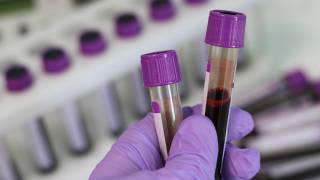Hepatitis and HIV Tests Suggested for 3,778 New Jersey Patients

Patients of a Bergen County, New Jersey, surgery center may have been exposed to hepatitis B, hepatitis C, and HIV, according to a letter issued on December 24, 2018.
The exposure risk was determined “as part of an investigation into infection control breaches” at a HealthPlus Surgery Center facility, according to the New Jersey Department of Health (NJDOH).
The NJDOH is advising patients to get blood tests if they visited the HealthPlus Surgery Center in Saddle Brook, NJ, at any time between January 2018 and Sept. 7, 2018, reported the AP.
According to a letter sent to patients by HealthPlus, the facility is paying for affected patients to have their blood tested.
The NJDOH said that the risk of infection is low, but is still urging 3,778 people to get tested out of caution.
Those affected patients can call 1-888-507-0578 during weekdays between 9 a.m. and 9 p.m. to schedule a free test, which will be done at Hudson Regional Hospital, in Secaucus, NJ.
If the blood test is positive, a representative from Hudson Regional Hospital will explain the results and provide you with a referral to the appropriate specialist.
Previously, on September 7th, the NJDOH closed HealthPlus because some members of the facility’s staff were not following proper sterile processing procedures and failed to comply with other regulations regarding the dispensing and storage of medication, as well as infection control planning and procedures.
This HealthPlus facility reopened on September 28th, after completing a review process.
Hepatitis means inflammation of the liver, which is a vital organ that processes nutrients, filters the blood, and fights infections, says the Centers for Disease Control and Prevention (CDC).
When the liver is inflamed or damaged, its function can be affected.
However, hepatitis is often caused by a virus.
In the United States, the most common types of viral hepatitis are hepatitis A, hepatitis B, and hepatitis C.
Hepatitis B is transmitted when blood, semen, or another body fluid from a person infected with the Hepatitis B virus enters the body of someone who is not infected.
This can happen through sexual contact; sharing needles, syringes, or other drug-injection equipment; or from mother to baby at birth.
Approximately 90 percent of infected infants become chronically infected, compared with 2–6 percent of adults.
Hepatitis B can be prevented with a vaccine.
Hepatitis C is generally short-term illness, but for 70–85 percent of people who become infected, it becomes a long-term, chronic infection.
Hepatitis C requires treatment with antiviral medications.
Additionally, a recent study reported that early detection of Hepatitis C could enable shorter, less costly treatment and more rapid reduction of the infectious viral pool. .
HIV is the virus that causes AIDS. It can stay in the body and slowly damage the immune system, making it harder to fight infections.
"All of us at HealthPlus understand this may be upsetting," the letter to patients reads.
“If you or your family members have questions, call the numbers below Monday through Friday from 9am-9pm.”
- In New Jersey: 1-866-448-2432
- Outside of New Jersey: 1-800-962-1253
Our Trust Standards: Medical Advisory Committee


























